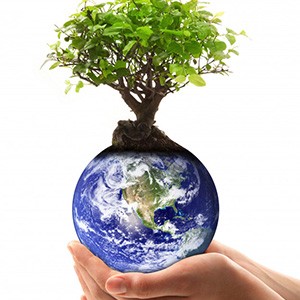
-
 Afrikaans
Afrikaans -
 Albanian
Albanian -
 Amharic
Amharic -
 Arabic
Arabic -
 Armenian
Armenian -
 Azerbaijani
Azerbaijani -
 Basque
Basque -
 Belarusian
Belarusian -
 Bengali
Bengali -
 Bosnian
Bosnian -
 Bulgarian
Bulgarian -
 Catalan
Catalan -
 Cebuano
Cebuano -
 China
China -
 China (Taiwan)
China (Taiwan) -
 Corsican
Corsican -
 Croatian
Croatian -
 Czech
Czech -
 Danish
Danish -
 Dutch
Dutch -
 English
English -
 Esperanto
Esperanto -
 Estonian
Estonian -
 Finnish
Finnish -
 French
French -
 Frisian
Frisian -
 Galician
Galician -
 Georgian
Georgian -
 German
German -
 Greek
Greek -
 Gujarati
Gujarati -
 Haitian Creole
Haitian Creole -
 hausa
hausa -
 hawaiian
hawaiian -
 Hebrew
Hebrew -
 Hindi
Hindi -
 Miao
Miao -
 Hungarian
Hungarian -
 Icelandic
Icelandic -
 igbo
igbo -
 Indonesian
Indonesian -
 irish
irish -
 Italian
Italian -
 Japanese
Japanese -
 Javanese
Javanese -
 Kannada
Kannada -
 kazakh
kazakh -
 Khmer
Khmer -
 Rwandese
Rwandese -
 Korean
Korean -
 Kurdish
Kurdish -
 Kyrgyz
Kyrgyz -
 Lao
Lao -
 Latin
Latin -
 Latvian
Latvian -
 Lithuanian
Lithuanian -
 Luxembourgish
Luxembourgish -
 Macedonian
Macedonian -
 Malgashi
Malgashi -
 Malay
Malay -
 Malayalam
Malayalam -
 Maltese
Maltese -
 Maori
Maori -
 Marathi
Marathi -
 Mongolian
Mongolian -
 Myanmar
Myanmar -
 Nepali
Nepali -
 Norwegian
Norwegian -
 Norwegian
Norwegian -
 Occitan
Occitan -
 Pashto
Pashto -
 Persian
Persian -
 Polish
Polish -
 Portuguese
Portuguese -
 Punjabi
Punjabi -
 Romanian
Romanian -
 Russian
Russian -
 Samoan
Samoan -
 Scottish Gaelic
Scottish Gaelic -
 Serbian
Serbian -
 Sesotho
Sesotho -
 Shona
Shona -
 Sindhi
Sindhi -
 Sinhala
Sinhala -
 Slovak
Slovak -
 Slovenian
Slovenian -
 Somali
Somali -
 Spanish
Spanish -
 Sundanese
Sundanese -
 Swahili
Swahili -
 Swedish
Swedish -
 Tagalog
Tagalog -
 Tajik
Tajik -
 Tamil
Tamil -
 Tatar
Tatar -
 Telugu
Telugu -
 Thai
Thai -
 Turkish
Turkish -
 Turkmen
Turkmen -
 Ukrainian
Ukrainian -
 Urdu
Urdu -
 Uighur
Uighur -
 Uzbek
Uzbek -
 Vietnamese
Vietnamese -
 Welsh
Welsh -
 Bantu
Bantu -
 Yiddish
Yiddish -
 Yoruba
Yoruba -
 Zulu
Zulu
'corrosion-resistant fiberglass for enduring durability.'
Corrosion-Resistant Fiberglass for Enduring Durability
In today’s world, where infrastructure and equipment are constantly challenged by the adverse effects of the environment, the quest for materials that can withstand corrosive conditions has never been more crucial. Corrosion-resistant fiberglass has emerged as a pivotal solution in industries ranging from construction to chemical processing, offering enduring durability and longevity for various applications.
Fiberglass, a composite material made from glass fibers and resin, has long been recognized for its strength and lightweight properties. However, the introduction of corrosion-resistant formulations has taken its advantages to a new level. Traditional fiberglass is susceptible to environmental factors such as moisture, chemicals, and extreme temperatures, leading to degradation over time. To combat these issues, manufacturers have developed specialized fiberglass materials that incorporate additives designed to enhance resistance to corrosion.
Corrosion resistance in fiberglass primarily arises from the use of thermosetting resins, such as epoxy and vinyl ester, known for their superior performance in hostile environments. These resins create a barrier that prevents moisture and chemicals from penetrating the material, significantly prolonging its lifespan. For instance, when fiberglass is used in piping systems within chemical plants, corrosion-resistant fiberglass can endure the harshest of chemicals, thereby reducing maintenance needs and costs.
Another significant advantage of corrosion-resistant fiberglass is its adaptability to various applications. In the construction sector, it is increasingly being used for structural components, cladding, and roofing materials. These components can withstand exposure to harsh elements such as salt spray in coastal areas, making them ideal for marine applications. Additionally, fiberglass can be molded into intricate shapes and designs, allowing architects and engineers to explore innovative structures while ensuring durability.
'corrosion-resistant fiberglass for enduring durability.'

The implications of using corrosion-resistant fiberglass extend beyond just physical durability; they also contribute to enhanced safety standards. Materials that degrade can lead to structural failures, posing risks to personnel and equipment. In industries such as oil and gas, where the stakes are incredibly high, utilizing fiberglass that resists corrosion significantly decreases the risk of accidents. This feature not only safeguards human life but also protects the environment from spills and leaks resulting from equipment failure.
Moreover, the environmental impact of fiberglass cannot be overlooked. As industries become more conscious of their ecological footprint, sustainable materials are increasingly favored. Corrosion-resistant fiberglass often has a longer lifespan compared to conventional materials, which translates to reduced waste and the conservation of resources. Additionally, many manufacturers are exploring recycled materials in their fiberglass production, further enhancing sustainability without compromising on performance.
Challenges do exist with the adoption of corrosion-resistant fiberglass. The initial cost may be higher compared to traditional materials, which can deter some companies from making the switch. However, when evaluating the lifetime costs — including maintenance, replacement, and potential safety issues — the investment can prove worthwhile. Over time, the durability and reduced need for repairs often translate to lower total costs, making it a financially sound choice.
In conclusion, corrosion-resistant fiberglass represents a significant advancement in materials science, providing industries with a robust solution to the challenges of corrosion. Its combination of strength, adaptability, and long-term performance makes it a preferred choice across a variety of sectors. As the demand for reliable and sustainable materials continues to grow, the use of corrosion-resistant fiberglass is set to expand, paving the way for safer and more durable infrastructures. By embracing this innovative material, industries can not only improve their operational efficiency but also contribute to a more sustainable future. As we move forward, the importance of selecting the right materials for enduring durability cannot be overstated, and corrosion-resistant fiberglass stands out as a remarkable contender in this vital arena.









